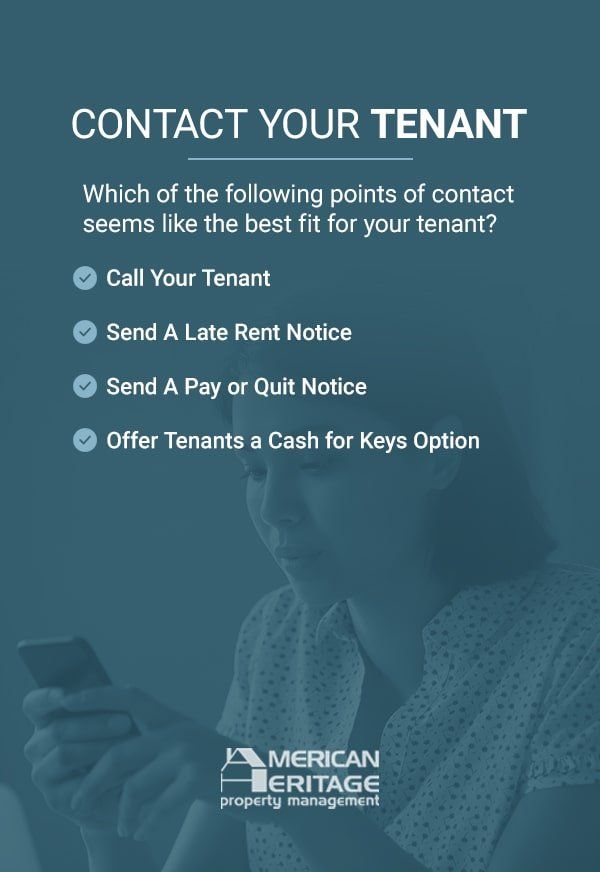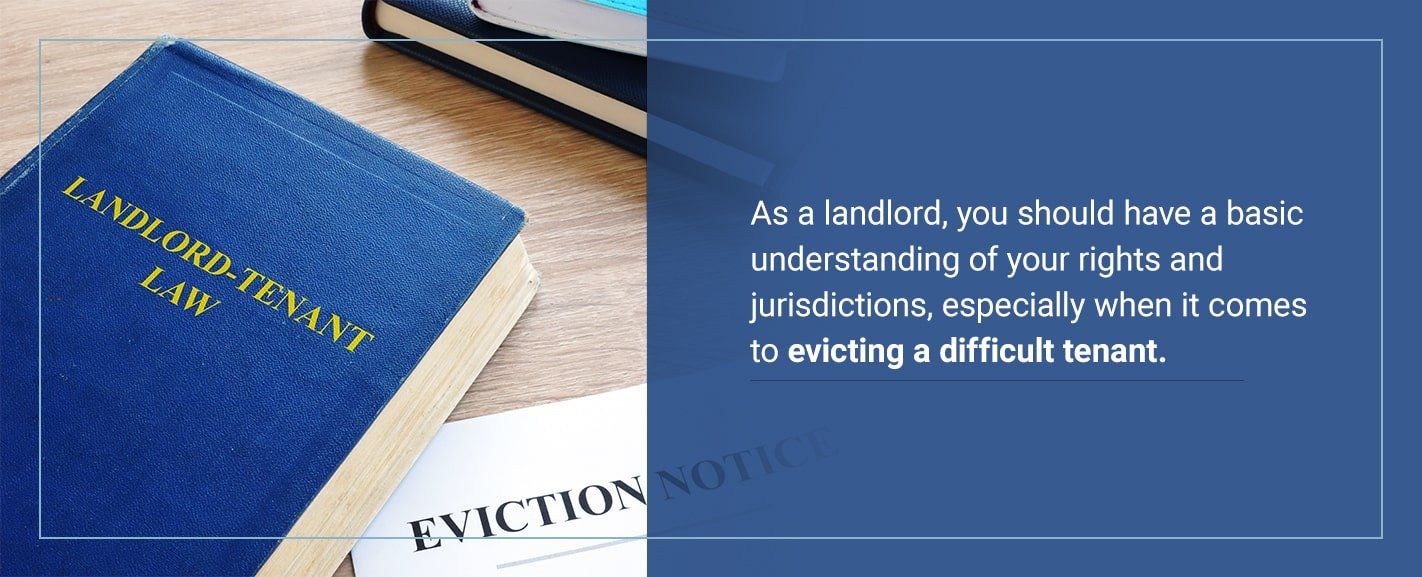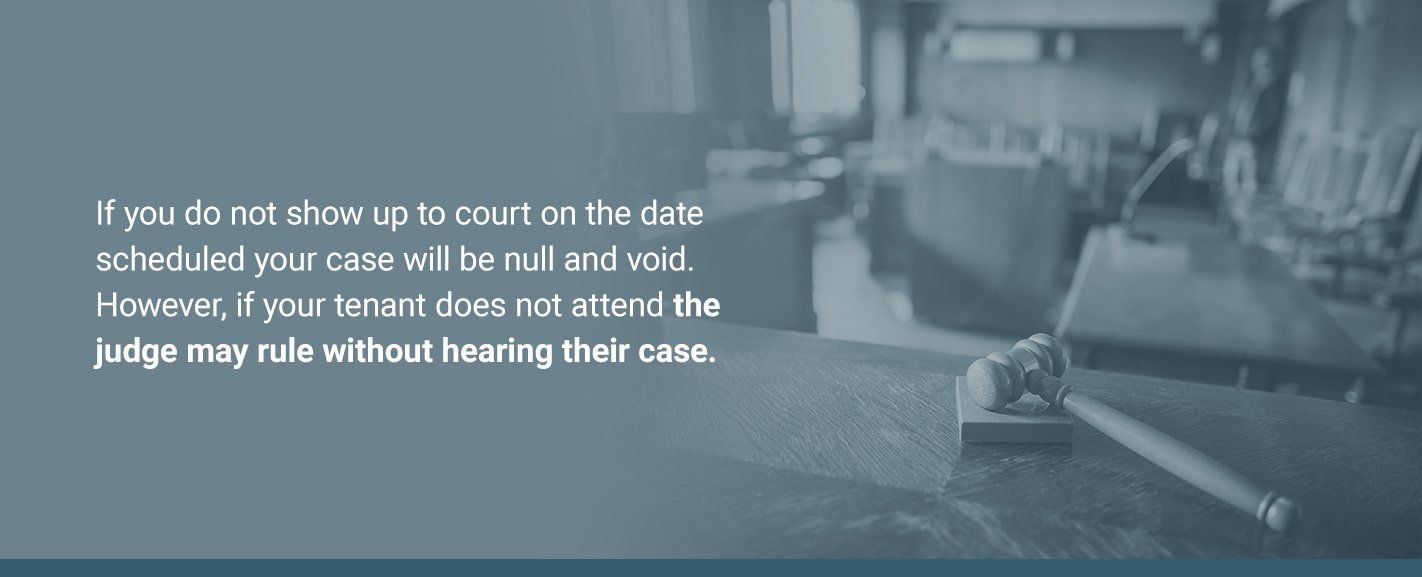What To Do If A Tenant Doesn't Pay Rent
In recent months, all of us have had to face new "What if" questions. In particular, property owners and landlords have had to manage the question, "What if my tenant doesn't pay their rent on time?" Renters are contractually obligated to pay their rent, and breaking this lease agreement can lead to serious consequences.
As a landlord, it's your responsibility to manage your tenant's payment status and contact them if they are late on rent. Notifying your tenant can have uncertain outcomes, but you can handle the conversation strategically to avoid negative repercussions.
As a landlord, you need to be prepared to handle a tenant who isn't paying their rent. Knowing exactly what to do and following through on the consequences will enforce the rules that all your tenants must abide by. For this reason, it is crucial to organize a plan to contact, negotiate and even take legal action if necessary.
Read more to learn what to do when a tenant stops paying rent
Determine if the Rent Is Actually Late
In most rental agreements, landlords require tenants to pay their rent by the first of the month. There may be some exceptions in instances such as:
Holidays and Weekends
If the first of the month is a weekend or holiday, rent payments are generally due the next business day. For example, if the first of the month was on a Saturday, rent payments would be due Monday.
ACH Transfer
Most landlords have tenants pay rent online, which uses an automated clearing house transfer (ACH) to transfer funds from the tenant's bank account to the landlord's account. There may be times when the tenant transfers funds on the first, but they do not appear until the next business day.
Check the Mail
While most landlords prefer online payments, some still take rent payments through the mail. Landlords and tenants have no control over mail delivery speeds, which means a landlord may not receive payment until the fifth or sixth of the month. Typically, if a rent payment has a postmark for the first of the month but the landlord does not receive it until the fourth, the tenant can still claim that they paid their rent on time.
Grace Periods
Depending on local and state laws, the landlord may have to give a grace period before officially determining the rent is late or charging a fee. Pennsylvania and Maryland do not currently have laws requiring landlords to provide a grace period, which means landlords can set their terms for late payments, including how much they charge.
If none of the above applies to your situation, you will need to take action to collect your rent payment. Before taking this next step, review the rental agreement for your pre-determined grace period or late fees. Once you have all of your information in place, you can move forward with collecting a payment or the eviction process.
Contact Your Tenant
Before reaching out to your tenant, consider their payment history. Have they consistently been late with rent payments before, or is this their first time? Check the payment history and recorded documents you have for this tenant. It is quite possible that you overlooked a payment sent on time. You don't want to have this conversation if it's not completely necessary. Human error is bound to happen, so double-checking is always best before contacting the tenant in question.
Once you've gone through your documents, that information will help you decide the best way to take action. In the best-case scenario, if this is someone's first time being late with their rent, you will contact them, and they will explain that they've forgotten or there was an error with the payment method or account.
You can resolve this with a warning or a late fee if your local and state laws allow it. However, if you're dealing with a difficult tenant, it's time to discuss the best plan of action moving forward. Think about your tenant. Which of the following points of contact seems like the best fit for your tenant?
Call Your Tenant
A simple phone call could be all you need to settle the payment situation if your tenant is someone who isn't regularly behind on rent. Before you call, assess any late fees they owe and calculate the total amount they need to pay. Then, you can communicate that they are late on their payment and explain that the fee enforces the rules that were contractually agreed upon at the beginning of their rental agreement.
Verbalizing an exact price will avoid any confusion with what your tenant needs to pay on time. During the phone call, give a clear due date for which the tenant is expected to pay the included late fees.
Send A Late Rent Notice
As a landlord, it's always important to get everything in writing. This rule applies when dealing with tenants who have a history of not paying rent on time. Sending a late notice for rent is a gentle reminder to someone that their rent is past due. When writing a late rent notice, it should always include a clear message with the following points:
- When their rent was originally due
- How much rent your renter owes
- What late fees you will charge
- What will happen if they don't pay the rent
- How to contact you with any questions or concerns
There is more than one way to deliver a letter of notice to the tenant. It can be given in person, attached to their door, sent by mail or in an email. Along with sending a hard copy, also send an electronic copy to their email increase the chances of the tenant seeing the message sooner.
You should always keep a copy of the notice letter for your records too. This letter can serve as evidence of when and where you contacted a tenant with a warning notice about their late rent. That way if the issue escalates you will have written proof that you notified the tenant before taking legal action.
Send A Pay or Quit Notice
For tenants who have been consistently late on payments or not paying their bills at all, you may need to resort to a more serious form of contact. Similar to a late rent letter, the pay or quit notice acts as an official letter informing your tenant that they are late on rent payment and how much they owe.
Along with notifying the renter, this form also serves as the official first step of the eviction process. During a court hearing, this document will be evidence of when, where and how much the tenant owes you.
Every state has different laws regarding how much time the tenant gets between receiving a pay or quit notice and paying their landlord. For example, both Pennsylvania and Maryland do not grant a grace period after rent is late.
Check your state and local laws to confirm the renter's rights before sending a pay or quit notice to avoid any misinterpretation or unnecessary legal action.
No matter what type of contact you choose, acting quickly and consistently to enforce the rules is your role as a landlord role. Reach out to your tenant about their late rent payment and come to an agreement before the situation feels out of your control. There may be an easier solution than you realize.
Remember to always keep a record for yourself, whether it's a copy of the notice or a printed record of the phone call. A paper trail will be beneficial if the circumstances escalate to an eviction case.
Offer Tenants a Cash for Keys Option
After discussing the options with a tenant or receiving no response at all, it could be in your best interest as a landlord to offer cash for keys. This means you would pay your tenant to move off your property as soon as possible. For whatever reason, your tenant's financial situation may no longer allow them to be the best renter for your rental property. Many tenants in this situation will accept the money as a motivation for moving out and finding a new living situation.
Although cash for keys seems like you're encouraging someone's bad behavior, this option is beneficial for everyone in the long run. A renter is not reliable if they are consistently late with payments or not paying at all. You do not want to waste time or money on someone who cannot fulfill their commitment in the first place. Offering them a way out not only saves them the hassle of paying, but it also allows you to find a better, more consistent tenant for your rental property sooner.
Negotiating a cash for keys option with an unwanted tenant will get them out of the property quickly, and it'll help you avoid the eviction process as well. Ultimately, you will save money and time removing the tenant without the hassle of going to court.
Follow the Eviction Process for Landlords
If your tenant is causing serious problems and neglecting to pay rent, then it's in your rights as a property owner to evict. However, changing the locks on someone, turning off their utilities, or harassing them off the property is never the correct approach. These actions are illegal and considered morally questionable.
The proper way to handle an eviction is through the court system. Legal action is the only way to ensure a determined outcome of the case. Start this legal process by following the steps below and learn how to evict a tenant who doesn't pay rent.
Learn about Eviction Law
As a landlord, you should have a basic understanding of your rights and jurisdictions, especially when it comes to evicting a difficult tenant. Laws change depending on the state, so if you own multiple properties in different states, it's important for you to know the regulations of each one.
Eviction laws are subject to change with circumstances like the COVID-19 pandemic. New laws are put into place by lawmakers to protect both the tenant and landlord during unprecedented times. In a short amount of time, these laws can change, so knowing your property owner rights from that start will make a huge difference. Educating yourself on eviction laws and your rights will make the process easier and help you prepare for an eviction case.
Gather Your Important Documents
From phone records and emails to unofficial late rent notices and pay or quit notices, all these documents can stand as pieces of evidence. Each document collected stands as a record that you communicated with the tenant about their rent status. Along with this information, their signed lease will show that they are contractually obligated to pay rent at a certain time every month.
In court, you can use these documents as proof of your history with the tenant. Any evidence showing your tenant is no longer fit to rent your property will strengthen your case.
Hire an Eviction Lawyer or a Property Manager
Find a professional to help you manage your records and present your case to the court. A lawyer or experienced property manager knows how to handle a variety of eviction situations. American Heritage Property Management's eviction service providers will protect you from liability with their knowledge of the laws and regulations in Central Pennsylvania and the Baltimore, Maryland areas. With their expertise, you can take some of the stress away, prepare a case with confidence, and still focus on the day-to-day tasks of being a landlord.
Take Your Case to Court
Once you align with a lawyer or property manager service, like AHPM, and have all the correct documents in place, it's time to file your case to the court. Since the pay or quit notice is the first official step in the eviction process, you'll need to wait until that due date has passed to file your case. You must grant the tenant the full grace period.
However, if there is still no payment or response after that time, you can proceed to the second step of the process. Once you submit everything and it gets accepted, you'll receive a court date.
During the waiting process between filing for eviction and the court date, do not accept any payment from the tenant if it's not the full rent amount including late fees. If any money is taken, the court may see it as grounds for rejecting the eviction case and you'll have to start the process over again.
Go to Court
You and your tenant will arrive at court on the scheduled day to state your cases. The judge will hear both sides of the eviction case and make a decision based on the facts presented. Overall, the verdict will be based on whether or not the delinquent tenant provides evidence that they have paid their rent. The actual court case will not take too long, but the process to get there is why landlords try to avoid going through an eviction, especially without help from an eviction lawyer or property management agency.
If you do not show up to court hearing on the date scheduled your case will be null and void. However, if your tenant does not attend the judge may rule without hearing their case. Although the eviction process may seem time-consuming and daunting with your money and energy, the court's outcomes are completely justified with the laws and regulations of your state. This is the best way to remove a delinquent tenant from your property.
Help the Tenant Move Out
As soon as the eviction process is complete and the court approves you to remove the tenant, you still need to take precautions. For example, never evict the person yourself. This could lead to other legal issues.
You should consider hiring a professional moving service and a locksmith to settle the arrangement with the tenant, which a property management agency can help with. These experts will know how to handle the situation and they are protected under the legality of their occupations.
The goal is to remove the tenant as quickly and efficiently as possible, try not to worry about the added costs, and always keep the receipts during this process. Even though you're paying for these services, you can try to settle the costs in court. Just think: the sooner your property is unoccupied, the sooner you can find a paying tenant to fill the space.
Contact American Heritage Property Management For Help
As the largest scattered site property management agency in Central Pennsylvania, AHPM oversees 3,300 properties. Paired with our 41 years of management experience, we assist landlords around the Pennsylvania and Baltimore Metro area with tenant screening, rent collecting, tenant eviction, and more.
Let the experienced professionals at AHPM help you manage, organize, and work out the stresses of owning an investment property so you can focus on the growth of your business. Contact AHPM today to prepare a plan for tenants who do not pay their rent on time, and avoid the stress of going through the eviction process alone.









